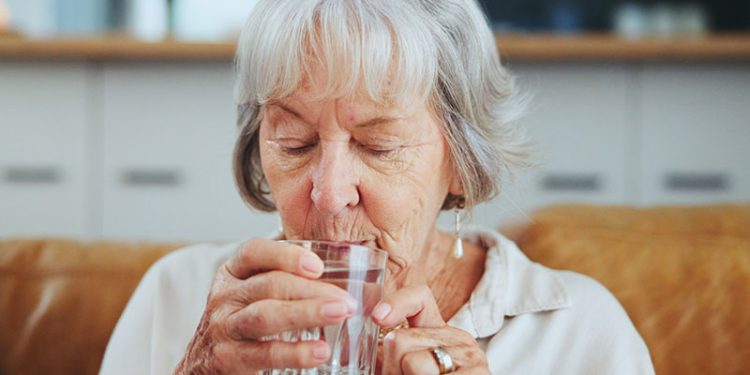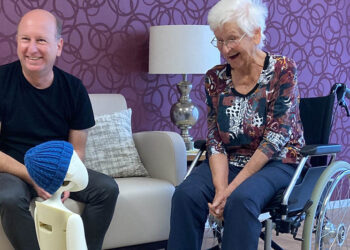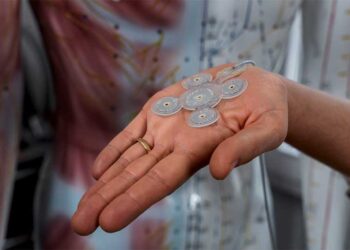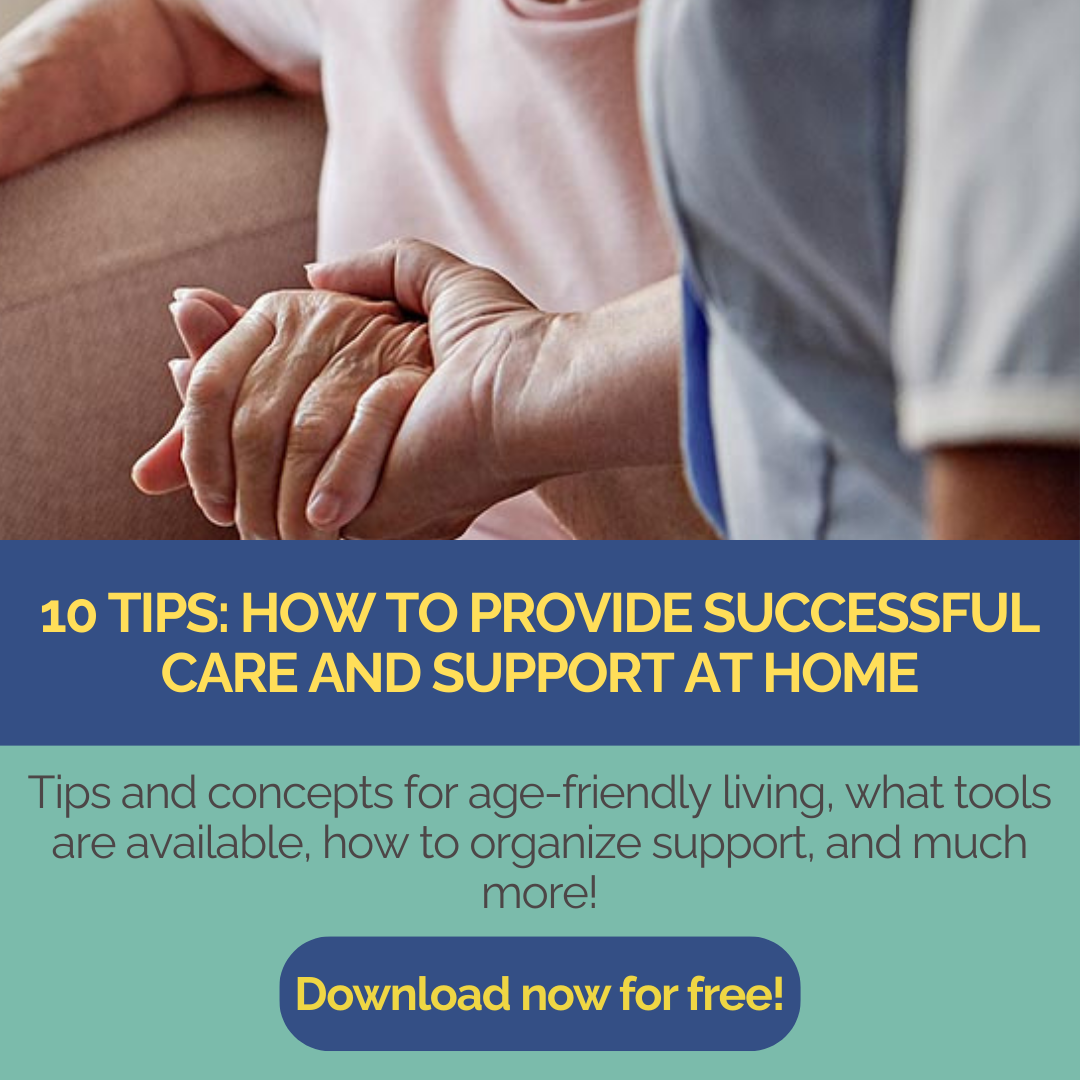Drinking enough is essential for our health – but many people find this difficult, especially as they get older. It is particularly important to drink enough in summer. This also has to do with the fact that we gradually lose our ability to adapt to high temperatures as we get olderThe sensation of thirst decreases, the skin releases heat more slowly in old age and our cardiovascular system works less efficiently. And sometimes we simply forget to reach for a bottle of water regularly. Medication and illnesses can exacerbate these problems.
The consequences can be serious: Starting with tiredness, poor concentration, confusion and even hospitalization due to dehydration. A lack of fluids also affects the circulation and leads to dizziness, weakness and circulatory collapse – which also increases the risk of falls.
Drinking reminders help to gently, regularly and individually remind older people to drink – and at the same time relieve the burden on family members and carers. These aids are not just a convenience feature, but are also a medically relevant part of everyday support due to the consequences of dehydration.
We show which concepts are available and which systems have proven themselves in practice.
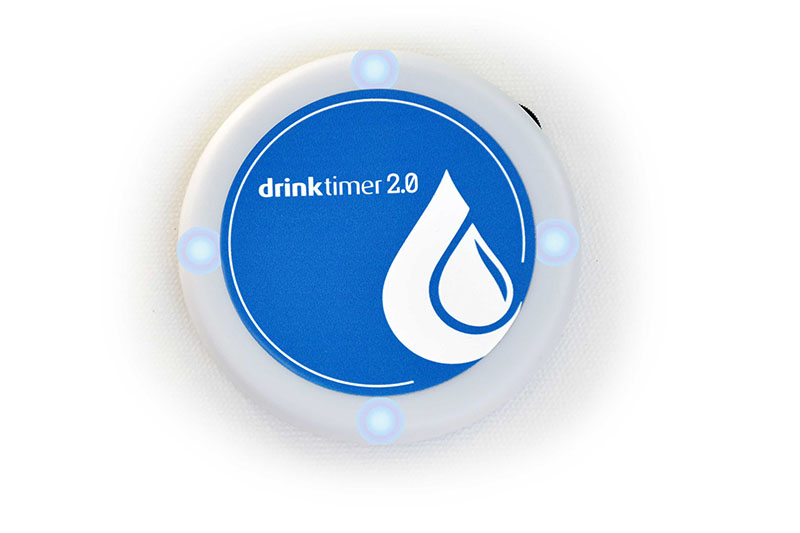
How do drinking memories remind you?
The products on the market can be roughly divided into four categories:
- Time-controlled reminders (timer-based)
Example: Digital wristwatches, solutions such as Drinktimer (der-drinktimer.de), talking alarm clocks, classic drink reminders
-
- Reminder acoustically or by vibration at fixed intervals
- Inexpensive & simple, often also usable offline
Advantage: Easy to use, inexpensive, no app required
Disadvantage: Does not react to actual drinking behavior
-
Intelligent drinking vessels (Smart Bottles & Cups)
Example: Ulla (Ulla.io), HidrateSpark (hidratespark.com/)
- Measure the actual drinking behavior (e.g. via motion sensor or weight)
- Reminder via light or sound signal directly on the vessel
- Some models are linked to apps
Advantage: Direct reminder at the location of the action
Disadvantage: Sometimes complex operation for older people with disabilities.
- App-based reminders & monitoring
Example: Apps such as “Water Minder”, “Aqualert”, care apps with care connection
- Users receive reminders on their smartphone or tablet
- In the care context: data can be made visible to relatives or care services
- Depending on the app, sometimes combined with medication reminders
Advantage: Flexible, customizable, often with log function
Disadvantage: Operation requires basic knowledge of digital devices. If a care app is already in use, ask whether it also offers a drinking reminder.
- Integrated smart home technology & assistance systems
Example: AI-supported/digital assistance systems and AAL environments
- Drinking reminder becomes part of an overall concept (e.g. light signal in living room, voice instructions via loudspeaker)
- Automated analysis of routines, AI-supported reminder in case of deviation
Advantage: Low-threshold, unobtrusive integration into everyday life
Disadvantage: High technical effort and costs, which is particularly worthwhile for fall sensors, etc. Drinking reminders can be part of these concepts – ask if they are already in use. Incidentally, assistance systems are increasingly eligible for funding (e.g. from care insurance companies or federal state funding programs).
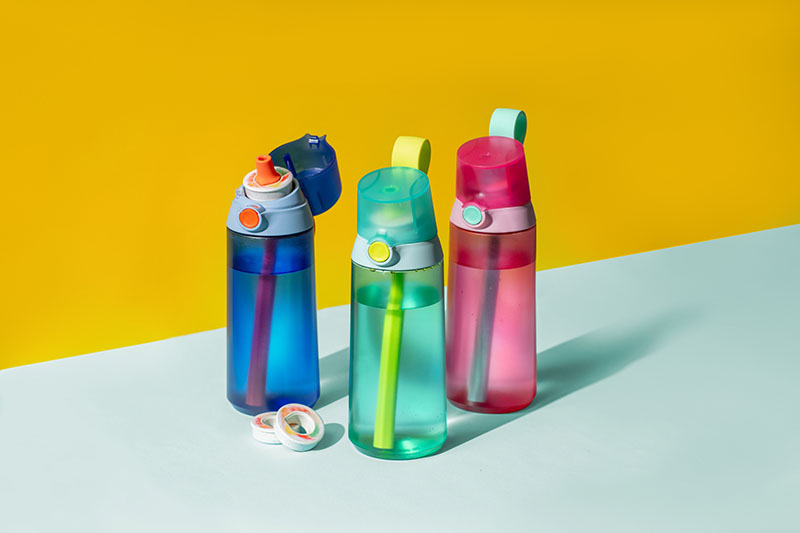
Practical experience
Discussions with providers, family caregivers and professionals in the field of everyday support have shown that the effectiveness of drinking reminder systems depends heavily on their design and integration into everyday life.
One essential aspect is the active involvement of users. If older people can help decide how and when they want to be reminded, this increases acceptance and helps to ensure that the respective system is actually used. Water alone may not be enough: teas or systems such as air up offer more flavor and are a more attractive alternative. Air up works with scent pods, so when drinking, the air becomes the flavor carrier – without drinking anything other than water (to the site).
A key success factor is the individual approach. Simple beeps or standardized signals that regularly remind people quickly lose their effect. On the other hand, reminders delivered by familiar voices – such as those of relatives – or friendly voice assistants are much better received and rated more positively emotionally.
Visual signals have also proven their worth in practice. For older people with impaired hearing in particular, flashing lights or illuminated drinking vessels are effective reminders.
Systems that link drinking to existing routines are particularly successful. For example, if drinking takes place in connection with taking tablets or at certain meal times, the likelihood that these reminders will actually be implemented increases.
Many good approaches, individual approach necessary
The variety of drinking reminder systems shows: The market is developing dynamically and is responding to the growing importance of everyday assistance in old age. Depending on the individual situation, affinity for technology and living environment, very different systems are suitable – from simple alarm clock solutions to networked smart home assistants.
Do you have experiences or questions about drinking memories?
Write to us at redaktion@sbc.co.at or take part in our market survey for family caregivers: To our survey
Author: Anja Herberth
Chefredakteurin

